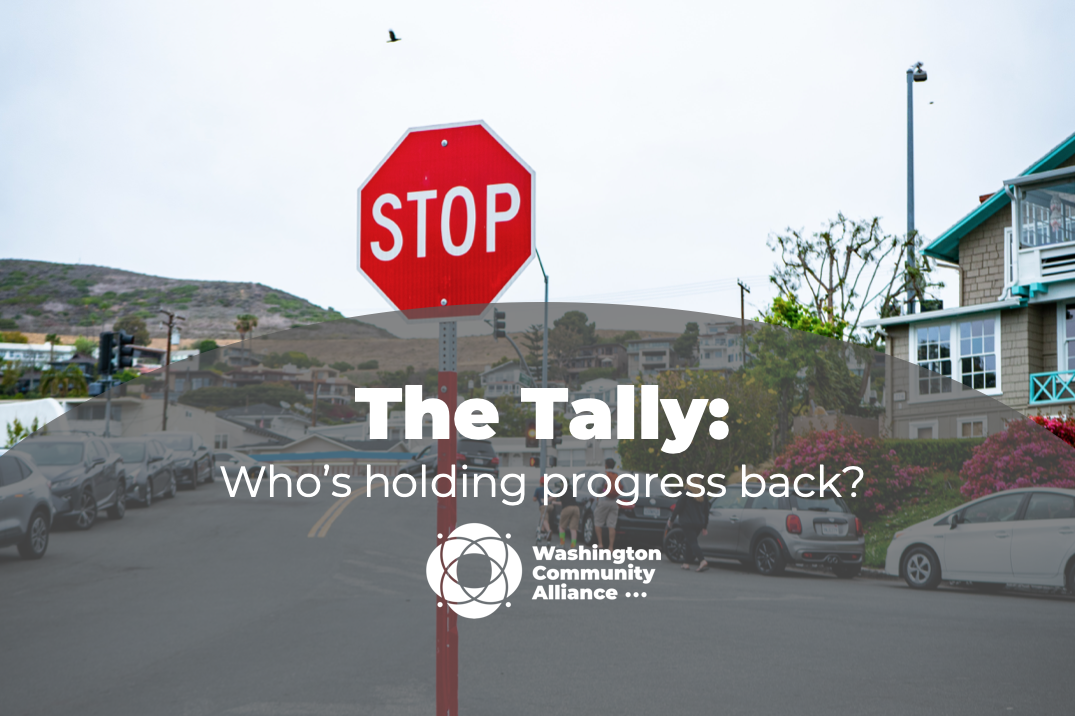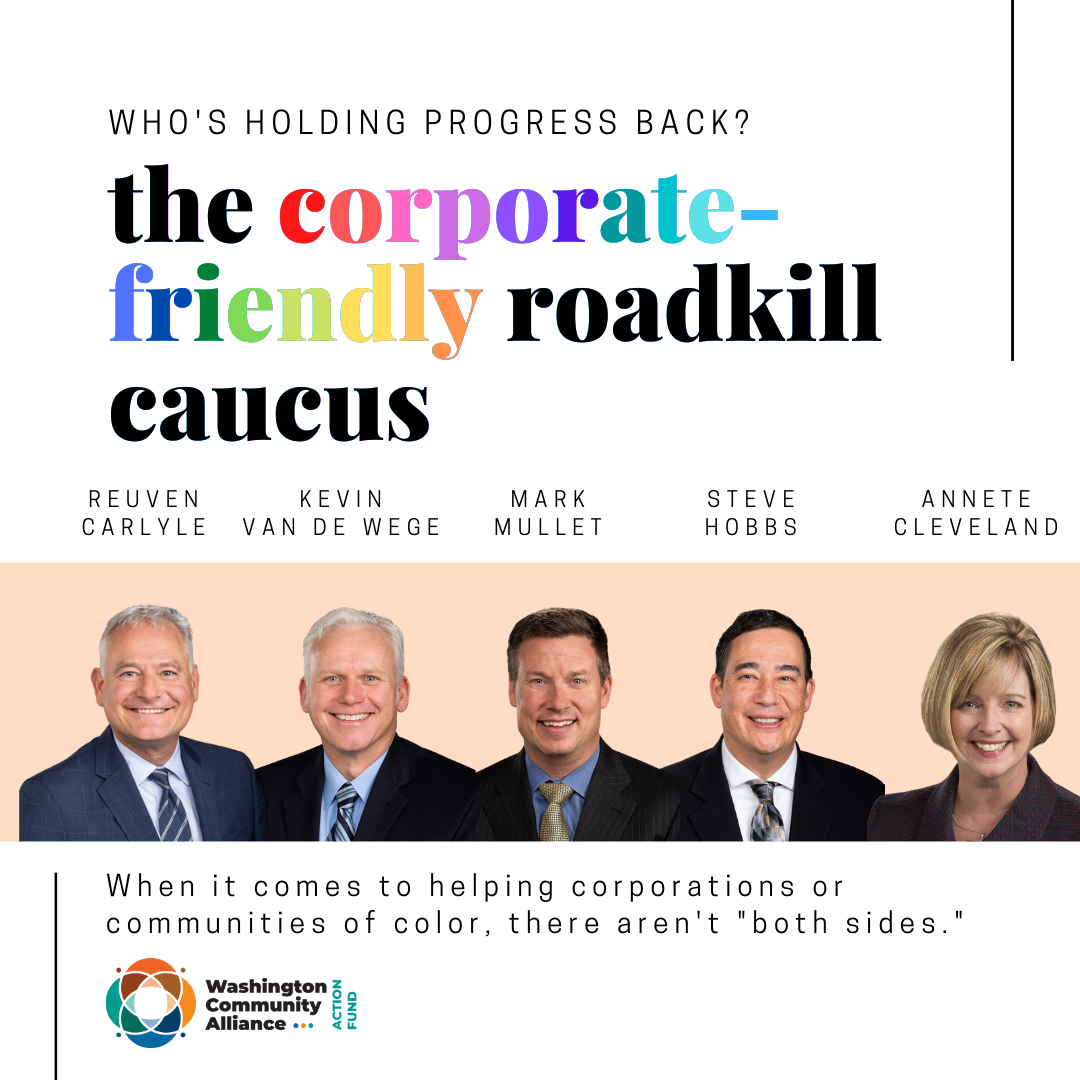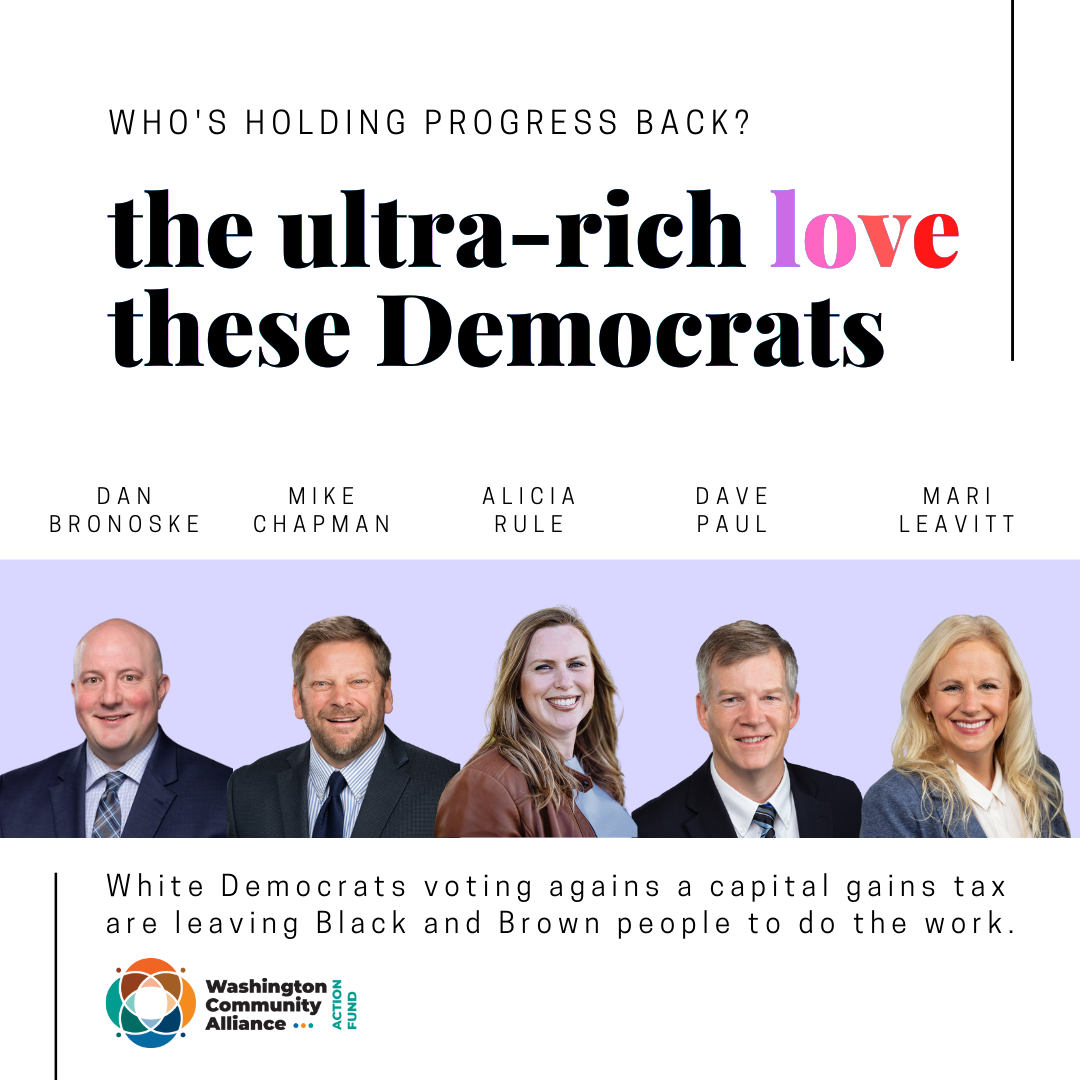
We’re just over two months past sine die and six months away from the 2022 session, so it’s as good a time as any to think through what—more precisely, who—is holding our state back from real progress.
The Roadkill Caucus
Formed in 2010 in response to unions calling out pro-corporate Democrats and supporting their primary opponents, the Roadkill Caucus (yes, they actually, unironically call themselves that) consolidated outsized power in a narrowly-divided senate. Sen. Mark Mullet—a literal multimillionaire banker who works for other multimillionaires—explained it this way: “The idea was if you’re in the middle, you’re getting run over from both sides—the far left and far right—that was the premise of roadkill.”
Those both sides? Working people like us and the ultra-rich like Mullet and his clients. Today, the Roadkill Caucus’ numbers are dwindling with only the Senate holding an actual caucus, but the vestiges of their politics remains a toxic sludge holding onto the dark corners of the capitol campus. These are Senators we would love to see the backs of.

Sen. Hobbs, Not All Skinfolk Is Kinfolk
The recent unprecedented heat wave—which left 60 dead—is a stark sign of what’s to come if our politicians don’t get serious about CO2 emissions and the climate crisis. Not all communities were hit the same: in King County, the south-end suffered the worst of the heat in part because of infrastructure policies dating back to the days of redlining.
Enter Senator Steve Hobbs: Chair of the powerful Transportation Committee and one of the biggest obstacles to justice for our communities. As the only legislator in both the Members of Color and the centrist Roadkill Caucuses, Hobbs is a walking object lesson on the limits of racial representation. When Black and Brown communities call out racism in corporate-friendly policies moving through the legislature, the other Roadkill Senators point to Hobbs’ support and claim it can’t be racist because he supports it.
Hobbs perhaps did the most damage when used his leadership position to ram through a package that invests in highways and cuts transit as part of a “grand bargain,” ignoring that working class communities of color, across rural and urban areas, are the hardest hit by pollution and already inequitably served by transit. He gave the 8,000 richest people in our state a way to fight the new capital gains tax, opening it up for electoral challenge by removing the emergency clause.
And after the Blake decision finally got us on track toward reversing the war on drugs, Hobbs introduced a bill with Mullet (blegh) to reinstitute and recriminalize the. exact. same. limits. in an insufferably ghoulish attempt to punitively criminalize drug possession and fill prisons with more Black and Brown people.
The Ultra-rich’s Favorite Democrats
For years, some Democrats have been spinning a story to our communities about how they claim to support us while voting against us. As the story goes, in their heart-of-hearts they’re with us, they want to tackle systemic racism and get the rich to pay their share, but they can’t vote for those things because that could risk losing their seat to a Big Scary Republican. Said another way: they have to behave like vampires to keep the vampires away—for our sake.
This year, with new members of color in power, that story collapsed, and we learned the truth. Let’s look at the capital gains tax vote, which was passed on the backs of Senators of color in vulnerable seats. Rep. Mari Leavitt and Sen. T’Wina Nobles represent the same district. Leavit won her seat by 15% while Nobles won by 1.4%. Guess which one voted to tax the rich? Sen. Emily Randall won by 0.2% and still managed to do the right thing.
Members of color stuck by our communities—and the conviction of their values!—while the white legislators below chose to throw Black and Brown communities under the bus and leave their colleagues of color holding the bag. This isn’t about good political calculus. It’s about signaling to the ultra-rich and their donors that they won’t betray them, and we see right through that.

What do you think? Have any questions? Tweet us your thoughts @wacommalliance. Keep up with the action and opportunities to get involved with our legislative newsletter The Tally.

